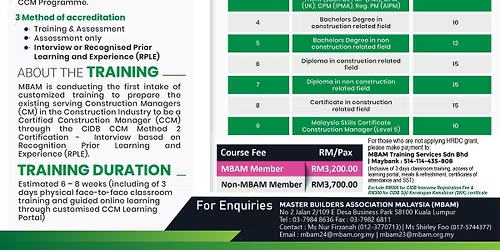TIACOE Research Seminar: Professor Renée Fry-McKibbin
Schedule
Thu Nov 13 2025 at 12:30 pm to 01:30 pm
UTC+08:00Location
Asia School of Business (ASB) Academic | Kuala Lumpur, KL

About this Event
We are thrilled to invite you to the upcoming Research Seminar at the Asia School of Business, featuring Professor Renée Fry-McKibbin.
Seminar Title: Rapid Productivity Growth in Asia: Internal and External Financing.
Event Details
📅 Date: 13 November 2025
⏰ Time: 12:30 PM – 1:30 PM
📍 Venue: Level 2, CR-W2-03, Asia School of Business
📝 Register now!
About the speaker:
Renée Fry-McKibbin is a Distinguished Professor at the Centre for Applied Macroeconomic Analysis (CAMA), Crawford School of Public Policy, Australian National University (ANU), and currently serves as Associate Dean (Research) for the College of Law, Governance and Policy. She is also a member of the Monetary Policy Board of the Reserve Bank of Australia (2025–2030).
Her research spans macroeconometrics, financial market econometrics, and time-series econometrics, focusing on international shocks, contagion, and macro-financial linkages. Professor Fry-McKibbin co-directs several CAMA research programs, including COVID-19 and the Macroeconomy, Finance and the Macroeconomy, and Commodities and the Macroeconomy.
Abstract:
Developing Asia has achieved remarkable economic growth in the last several decades but faces challenges moving from middle-income to high-income status. We examine the macroeconomic impacts of future productivity growth in developing Asia on the region and the world, focusing on the responses of private investment. We consider five scenarios of productivity growth driven by catch-up mechanism, with our results showing that Asia’s transition to high-income status requires continued rapid productivity growth and massive private investment. The increase in investment would significantly raise real interest rates domestically, resulting in international capital flows. Quantitatively, increased investment would be financed mainly through domestic saving, but international capital markets would also play a critical role. Productivity growth in one region generates spillover effects in others through two channels, namely international trade and capital flows. Spillover effects tend to be modestly negative in the medium term because capital flows would increase interest rates, but positive in the long term because regions with rising productivity would increase imports from other regions. Thus, competition among Asian economies and with other developing regions is not a zero-sum game as they benefit from each other in the long term. Continuous improvement in policies, institutions, and governance in developing Asia is required to achieve rapid productivity growth and to reduce the risks among economies in attracting international capital flows. Additionally, we examine two climate change scenarios and show that climate change will negatively impact productive investment and economic growth both in developing Asia and globally, as it will reduce productivity.
We look forward to your participation in this insightful research seminar.
Where is it happening?
Asia School of Business (ASB) Academic, 11 Jalan Dato Onn, Kuala Lumpur, MalaysiaEvent Location & Nearby Stays:
USD 0.00




















